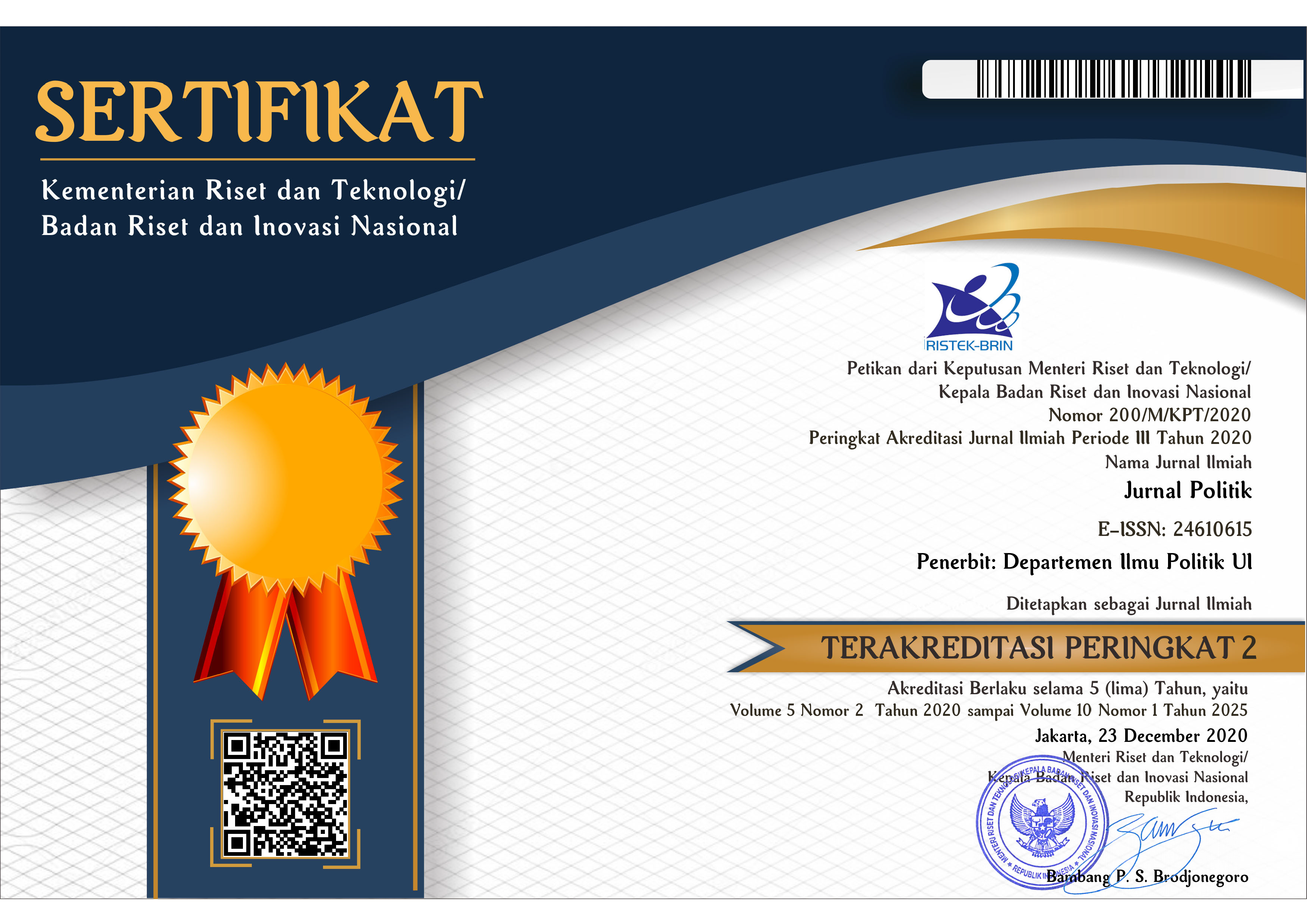Abstract
This paper attempts to respond to three major discourse of political representation. First, that the political representation will not bring the representation of interests, classes, and identities completely, only half or partially. Representation is not a mere claim on representations facts. Second, that the democratic political representation happens if those whose interests are affected or touched by a decision have the capacity to (engage) influence the decision-making. Third, that the political representation can be generated from the electoral process (the election) and non-electoral. The electoral process would produce a formal political representation in the realm of the executive and legislative positions in parliament. In the process of non-electoral political representation comes in the form of a political movement by groups, unions, community, or civil society organizations. In the context of the practice of political representation in Indonesia and its relation to the issue of women’s political representation, this paper viewed the practice of female political representation in Indonesia in the third discourse, as well as offer ideas and recommendations for the efforts to improve the representation of women.
Recommended Citation
Ardiansa, Dirga
(2016)
"Menghadirkan Kepentingan Perempuan dalam Representasi Politik di Indonesia,"
Jurnal Politik: Vol. 2:
Iss.
1, Article 2.
DOI: 10.7454/jp.v2i1.1127
Available at:
https://scholarhub.ui.ac.id/politik/vol2/iss1/2


